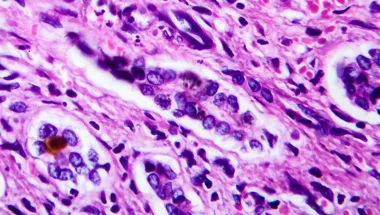
Dr Yun Ma
Reader in Liver Immunopathology
Biography
I am the Lead for a research group based at the Institute of Liver studies, defining the pathegenesis of varies of liver diseases, including autoimmune liver diseases (AILD) in both children and adults. AILD is characterised by the defects leading to immunotolerance breaks down in AILD, and defined the genetic association with AILD, including HLA and non-HLA genes. In addition to isolating and identifying novel autoantigens (alcohol dehydrogenage and soluble liver antigen) in the past, I have defined immunodominant epitopes on one of the major autoantigens, cytochrome P450 2D6 (CYP2D6) for CD4 and CD8 T cells. These epitopes have been used to isolate and expand autoantigen specific CD4+CD25+ regulatory T cells (Tregs), which are numerically and functionally defected in AILD. I have also used CYP2D6 to establish two novel mouse models of AILD, in which the disease risk genes, HLA DR3 and -DR4, are carried by these mice, facilitating the immunotelerance breaks down in the liver. I have also investigated immunological aspects in liver transplatation, promoting the latest technigue of liver graft presevation, nornmothermic machine perfusion (NMP). The final goal of my research is to restore immunotolerance in the liver through the application of immunoregulatory therapies to treatment AILD and also to induce liver graft acceptance. Since 2018, I have also working in the field of liver cancer, defining the main factors contributing to escaping of anti-tumour immunity in the case of hepatocellular carcinoma (HCC). We have identified that Osteopontin is linked with weakened anti-tumour immunity.
Research

MA Lab - Autoimmune Liver Disease
The Autoimmune Liver Disease group focuses on understanding the fundamental mechanisms underpinning Autoimmune liver disease (AILD) and developing immunotherapeutic approaches for its treatment.
Module organiser for Research Project in Infection and Immunity: 6BBI0310 and 6BBI0311
Research

MA Lab - Autoimmune Liver Disease
The Autoimmune Liver Disease group focuses on understanding the fundamental mechanisms underpinning Autoimmune liver disease (AILD) and developing immunotherapeutic approaches for its treatment.
Module organiser for Research Project in Infection and Immunity: 6BBI0310 and 6BBI0311
